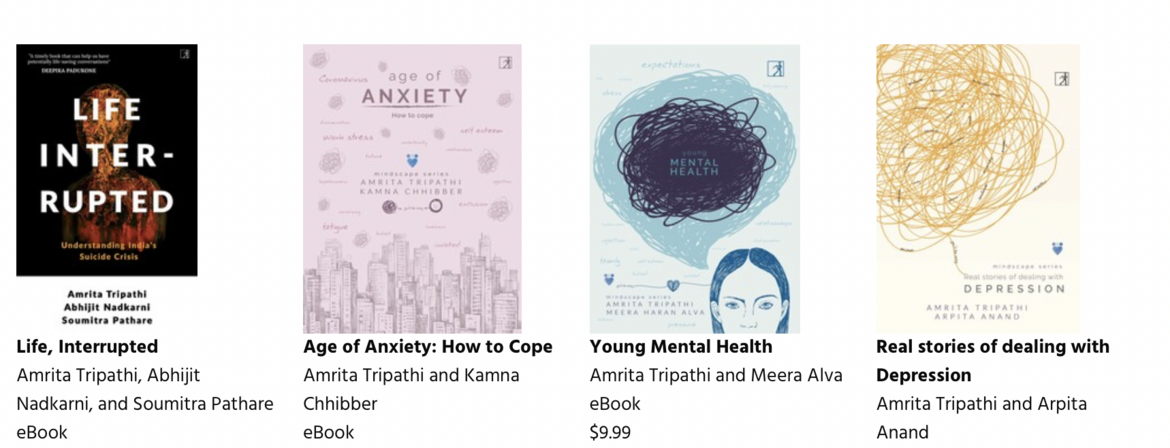I was introduced to Ravi Thornton on Twitter by my friend Jaideep Unudurti, the Hyderabad-based writer and graphic novelist. Ravi has collaborated with different illustrators to create a phenomenal, powerful work called HOAX - Psychosis Blues, a graphic novel that goes with a musical called HOAX - My Lonely Heart. She uses material -- poetry, diaries, conversations -- of and with her brother Rob, who was diagnosed with schizophrenia and eventually committed suicide.
As Ravi works with her team in the UK to create awareness about the condition, we have spoken about the need to lift the stigma, the need for access to treatment here in India, where mental health issues and illnesses, especially psychosis, are still very much a cause for stigma or hushed whispers... even though so many of us have relatives or friends who suffer, often in silence.
Who can help, who is qualified to treat, who can they/we reach out to in a country which is ridiculously under-served when it comes to mental health professionals? All important questions that I hope we can start to address. Till then, perhaps we can start -- or continue -- the conversation, hold off on the judgement and biases, and perhaps we can all look to see where we may play a role. Feel free to share your comments on here or on Twitter (@amritat)
Meanwhile, please do take a look at this powerful work. It will challenge your preconceptions and is nothing like anything I've seen. The full article and some excerpts from the graphic novel are over here, on Scroll.
- AT
----
This graphic novel on schizophrenia is a rare and artistic biography




The UK-based Ravi Thornton talks about the graphic novel HOAX Psychosis Blues and the stage musicalHOAX My Lonely Heart. A newly combined tour of the UK is being planned in 2017, along with discussions on mental health, a tour that she would love to bring to India, given half a chance. Excerpts from the interview:
To start with perhaps the most difficult question, how did you come up with the idea for a graphic novel based on your brother’s diagnosis of schizophrenia, his attempts to grapple with it, and his ultimate suicide?
I don’t really know how far back to go… I was chatting with theatre director Benji Reid around the idea of doing a play based on one of my brother’s poems titled HOAX. That chat led to the musical script, which explores the six months prior to my brother’s diagnosis.
But the questions being asked about what happened after he was diagnosed made me want to explore and communicate that aspect of his life as well. I was thinking about how to do that – how to process and communicate a decade of complex psychosis – and I felt that a graphic novel would be the ideal medium.
I was already familiar with the medium, through my first published graphic novel, and had established a wide network of illustrators. I knew that their vast array of styles could be used to capture the vast array of thoughts, moods, facts and fictions of my brother’s schizophrenic mind.
Also, because graphic novels have so little text compared to prose, you can deal very sensitively and lightly with subjects that are very painful and deep. The lightness of touch of the words, partnered with the impact of the illustrations, or vice versa.
And particularly because graphic novels give the reader space on a page, space for them to do their own grappling, with whatever it is that they’re relating to.
We get asked a lot about the book and its availability. In fact, from Ziggy’s wish, it only comes with the musical, as we feel it’s important to experience HOAX as a whole. But we would consider a publisher taking the graphic novel on under the right circumstances.
In the author’s note you mention that he wrote hundreds of poems, that you would sit and help him with them as well... in a “lighthearted way”, despite the obviously heavy context. And that you both planned to make “illustrated literary art”. Can you share anything about these conversations?
I remember distinctly, we were both sitting on the floor of the living room in my mother’s house in the summer. Rob was writing poetry and I was drawing stylised cats for a short story I’d written. We were chatting away to him. And there was definitely a feel of magic in the air. It always felt magical when we had conversations with such creative common ground.
Schizophrenia can make it hard for people to communicate and hard for you to communicate with them – whether that’s an inability to speak, or a roaring torrent of rage. I think when we had these moments discussing these shared dreams, the components of which were so beautiful, with such beautiful language, such lovely curlicues of pen on paper… it felt beautiful. A common goal. A common dream.
This work is a beautiful tribute to your brother, but also has an eerie effect on the reader. You have mentioned that people feel that it unlocks something in them, allowing them to share some of their stories, their emotions. Could you expand on this?
... For more, please go to the Scroll article here.

